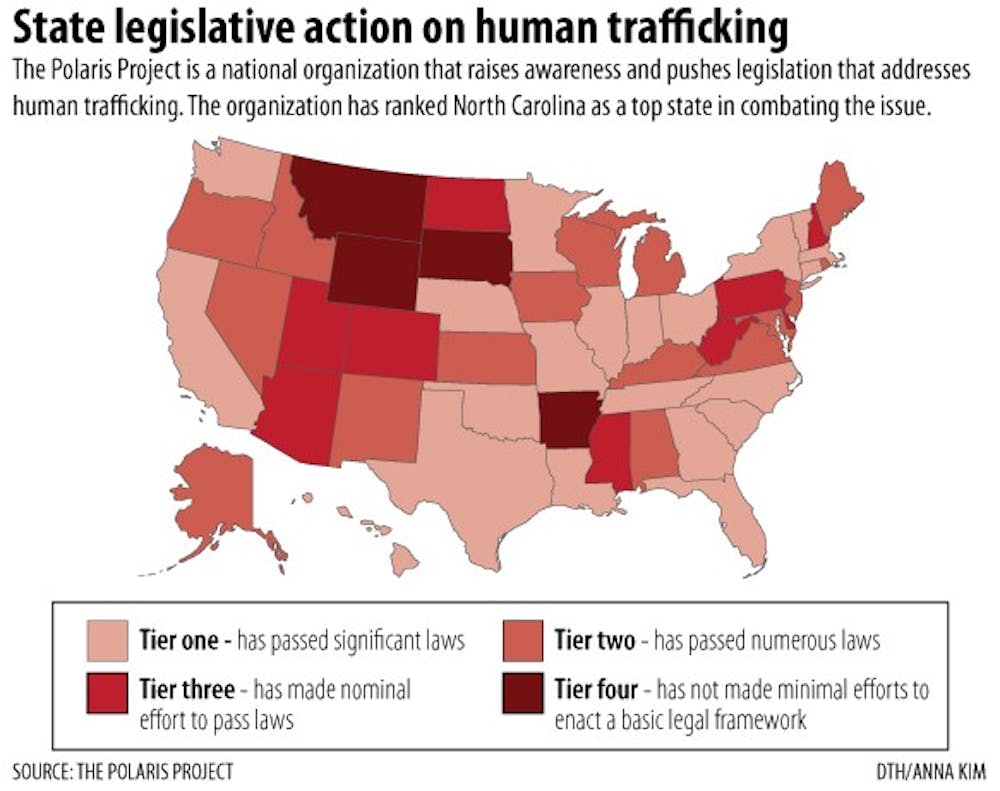Every week Abbi Tenaglia visits Emma’s Home, a restoration and rehabilitation house she founded that hosts girls who are victims of what is often an unseen crime in North Carolina — sex trafficking.
The girls, who are between 12 and 17 years old, go to Emma’s Home in search of opportunities to learn, grow and experience a family-like environment many of them have never had, said Tenaglia, who is a director at the Durham-based Transforming Hope Ministries.
“Some part of the girls wants to be healed, but they still have some attachment to their trafficker because they didn’t see them as a trafficker — they were a boyfriend or someone who they thought cared about them,” she said.
The Polaris Project, a national organization that raises awareness and compiles data about human trafficking, ranks North Carolina as a top-10 state for human trafficking, which includes both labor and sex trafficking.
The rankings are based on the number of calls the project’s hotline receives from each state. Calls range from responding to incidents to providing general information.
Megan Fowler, spokeswoman for the project, said national statistics concerning human trafficking victims do not paint the full picture because of the nature of the crime.
Fowler said many cases are unreported because some victims of sex trafficking do not realize they are victims. Sex traffickers manipulate victims into believing that they are participants because of personal choices, she said, not because it has been forced upon them.
“It’s a very hidden crime,” she said. “One where not a lot of data is being collected and one where there is widespread misunderstanding of what sex trafficking is and looks like.”
Sen. Thom Goolsby, R-New Hanover, introduced a bill in the N.C. General Assembly last month that aims to toughen the penalties for sex trafficking in the state.



